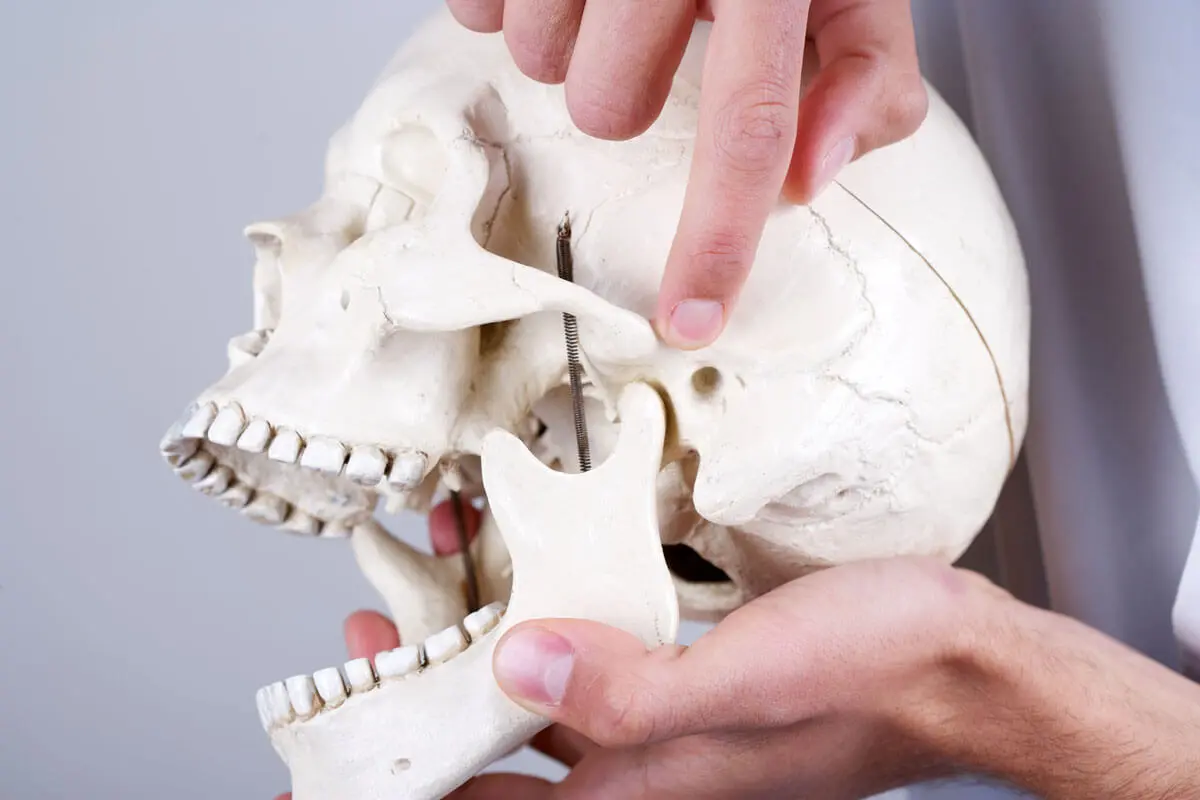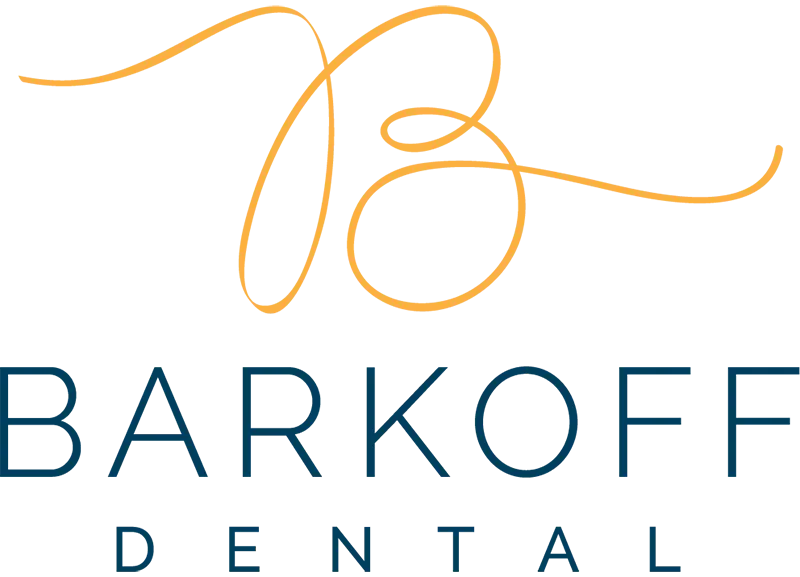TMJ Treatment in Syosset, NY

Barkoff Dental provides TMJ treatment in Syosset, NY. Call 516-921-1133 to learn more and schedule your appointment.
Most people don’t give much thought to the temporomandibular joint (TMJ) until it starts causing pain. This small joint connects the jawbone to the skull and acts like a sliding hinge whenever you open and close your mouth. When this joint is not functioning properly, it can cause pain in the cheeks, jaw, ears, and impact your overall jaw function. This is called TMJ disorder or TMD. Patients with TMD may experience chronic headaches, have popping or clicking in the jaw, and have difficulty eating.
Less severe cases of TMD can be treated with self-managed care, including eating soft foods during flare-ups, using cold compresses to reduce swelling, and avoiding extreme jaw movements. If these do not work, nonsurgical treatments for TMJ disorders include anti-inflammatory medications, Botox injections, and stabilization splints. Severe cases of TMD may require surgical procedures like jaw joint replacements.
Temporomandibular joint disorders typically fall onto one of these three categories:
- Myofascial pain – Discomfort or pain in the muscles that control the temporomandibular joint; this type of TMD is often a result of stress, teeth grinding, and jaw clenching.
- Internal derangement of the joint – This indicates that there may be a displaced disc, dislocated jaw, or injury to the condyle.
- Arthritis – Just as arthritis attacks other joints in the body, this degenerative inflammatory disorder can also attack the TMJ.
The most common signs and symptoms of TMJ disorders are as follows:
- Headaches
- Facial pain
- Tenderness in the cheek or jaw
- A feeling of fullness or pain in and around the ears
- Tightness in the jaw
- Popping or clicking sounds when opening the mouth
- Difficulty chewing
- Locking of the jaw
When you see a dentist for TMJ pain, we first try to identify the underlying cause for the disorder, as this will impact the treatments we use. In some cases, as with arthritis, we may coordinate treatment with another medical professional in order to provide you the best possible care.
Frequently Asked Questions About TMJ Disorders
What will happen if TMJ is not treated?
Some patients have only fleeting TMJ disorder symptoms, often after an injury or during a stressful time in their lives. When TMJ pain is chronic, though, we can expect that without treatment, the symptoms will worsen over time. When TMJ is due to arthritis or joint derangement, the longer it goes untreated, the more permanent damage will be done to the joint.
What can a dentist do for TMJ?
Dentists can diagnose and treat TMJ disorders; our expertise is not only in the teeth, but also in the anatomy and function of the jaw. Depending on the severity of your case and the underlying cause, we may prescribe medication, stabilization splints, or Botox for treatment, along with physical therapy exercises and self-managed care practices.
Is TMJ caused by stress?
TMJ disorder can certainly be exacerbated by stress. Some people react to stress and anxiety by clenching their jaws and grinding their teeth. This often occurs while they sleep, so they may not even be aware of it. Both of these actions set the stage for TMJ pain. Additionally, stress can cause muscle tension throughout the body, another reason for myofascial pain.
What is the difference between TMJ and TMD?
It’s become common for people to use the word TMJ to refer to TMD. TMJ stands for temporomandibular joint, while TMD is temporomandibular joint disorder. TMJ are the joints we all have and TMD is the pain some people experience in these joints.
Does TMJ cause clogged ears?
TMJ disorder doesn’t cause the ears to be clogged, but it does cause them to feel as if they are clogged. This is because the TMJ is located adjacent to the ear canal, so when it becomes inflamed, it can cause symptoms in the ears.
Call 516-921-1133 to schedule your appointment.
